Ahead of the Two-Day Exclusive Conference “New Mind, New Translation”
03/27/2025
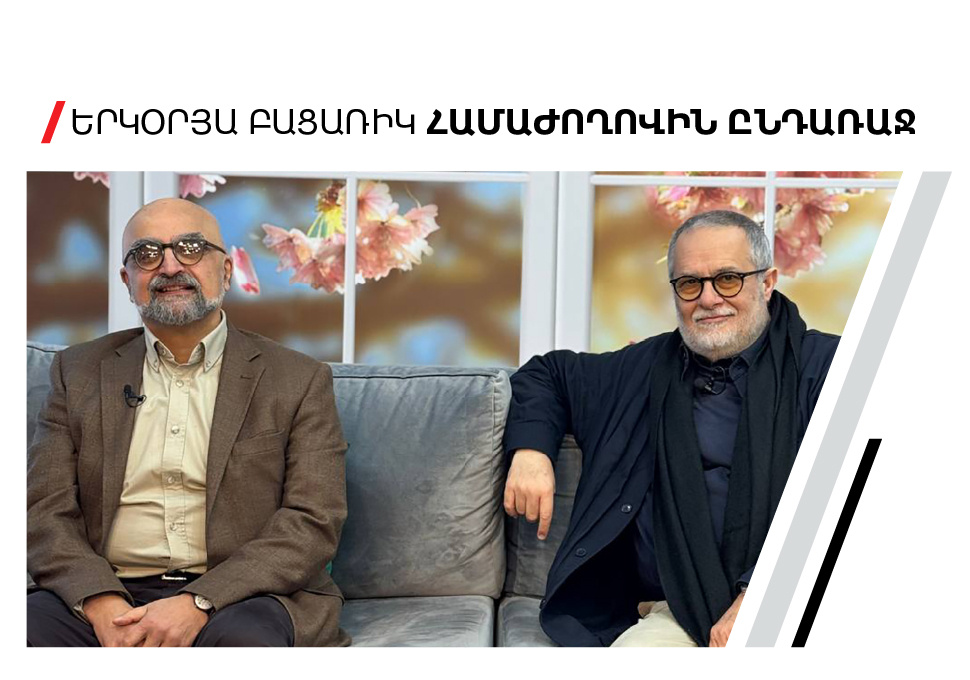
Newmag Publishing House and the Calouste Gulbenkian Foundation have unveiled details of the exclusive two-day conference “New Mind, New Translation”, set to take place in Yerevan on March 27–28. The announcement was made during a live segment on Armenia TV’s “Good Morning” program.
The conference will feature the presentation of five significant books, three focusing on psychology and two on geopolitics. The event has drawn international guests, including a delegation from Portugal and representatives of the Gulbenkian Foundation, who have traveled to Armenia specifically for this occasion.
During the live broadcast, Razmik Panossian, Head of the Armenian Communities Department at the Gulbenkian Foundation, introduced the three psychological books from the foundation’s translation series. He emphasized their relevance in helping Armenian society navigate a challenging post-traumatic period.
On the second day of the conference, two major geopolitical works will be presented, Edward Said’s “Orientalism” and “Broken Shield”, a collection of research examining the recent war. Explaining the selection, Panossian stated:
“Edward Said’s “Orientalism” explores how the West perceives and represents the East. It is a crucial book for students and specialists seeking to understand the power dynamics that shape global politics. Meanwhile, “Broken Shield” is a collaborative effort by Armenian, foreign, and Azerbaijani experts, analyzing the reasons behind the war and our defeat. It presents academic, evidence-based analyses, making complex geopolitical realities accessible to a broader audience. One of the studies was conducted by an Azerbaijani specialist, examining how internal disputes within the Azerbaijani elite influenced the war.”
Among the special guests at the forum is Minas Lurian, one of the three translators of “Orientalism”, who traveled from Venice to Armenia for the book’s presentation. Reflecting on Edward Said’s monumental work, he shared:
“Edward Said was a titan in his field, conducting an extraordinary amount of research to complete this book. As a Palestinian who was educated in the West, he had a unique perspective, bridging both worlds. His work is filled with rich literary and historical references, spanning from medieval European philosophers to modern historians. “Orientalism” does not seek to emphasize the contrasts between East and West, but rather to foster mutual understanding. Said even attempted to reconcile the two worlds through music, founding an orchestra composed of musicians from both cultures.”
“New Mind, New Translation” promises to be a landmark literary and intellectual event, bringing together voices from different disciplines to foster meaningful discussions on trauma, identity, and geopolitics.
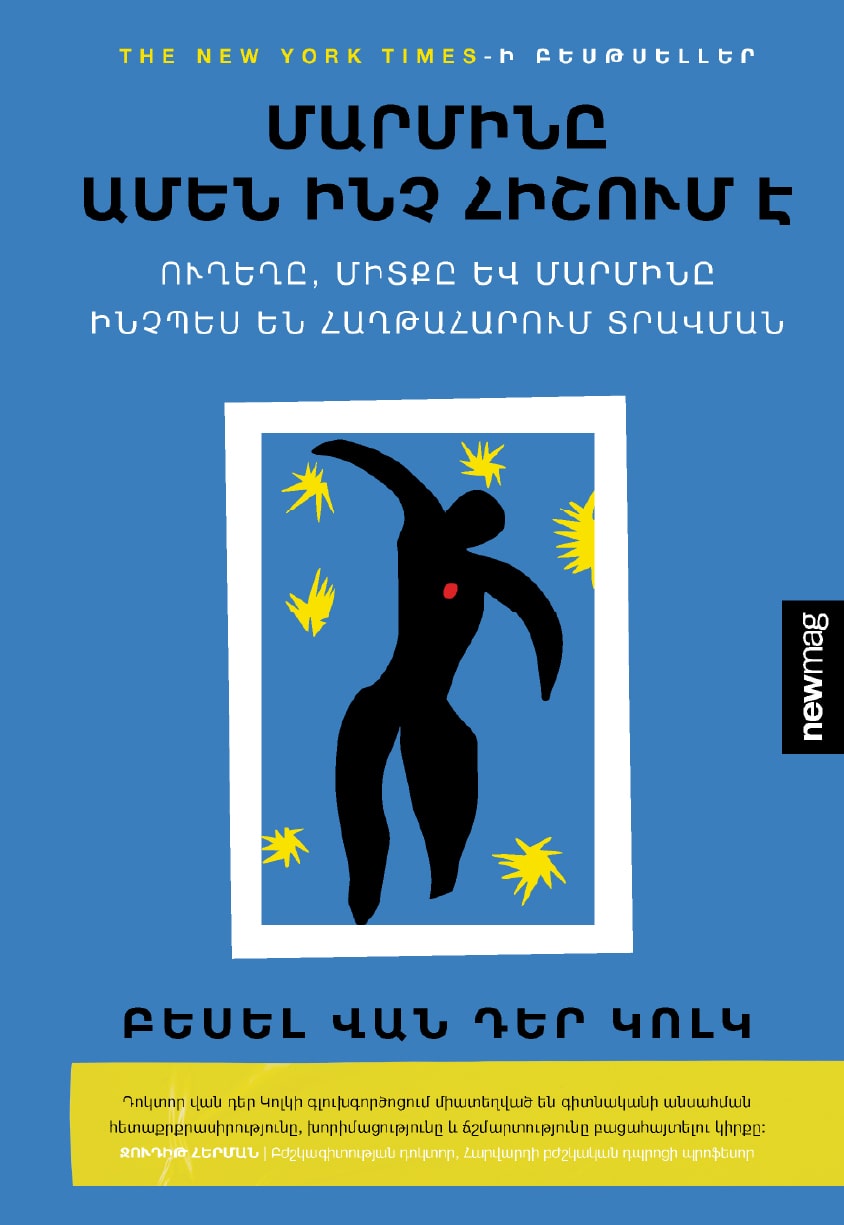
Bessel van der Kolk
7800 ֏
Description
Trauma radically changes the structure of the human brain, disrupts the delicate balance of the nervous system and the body's physiological reactions. In his bestselling work, world-renowned psychiatrist Besselvan der Kolk explains why painful memories are not forgotten, how they manifest in the form of physical and emotional problems, and how to overcome their consequences. Through true stories and scientific research, the author presents innovative therapeutic approaches that will help each reader restore mental and physical balance.
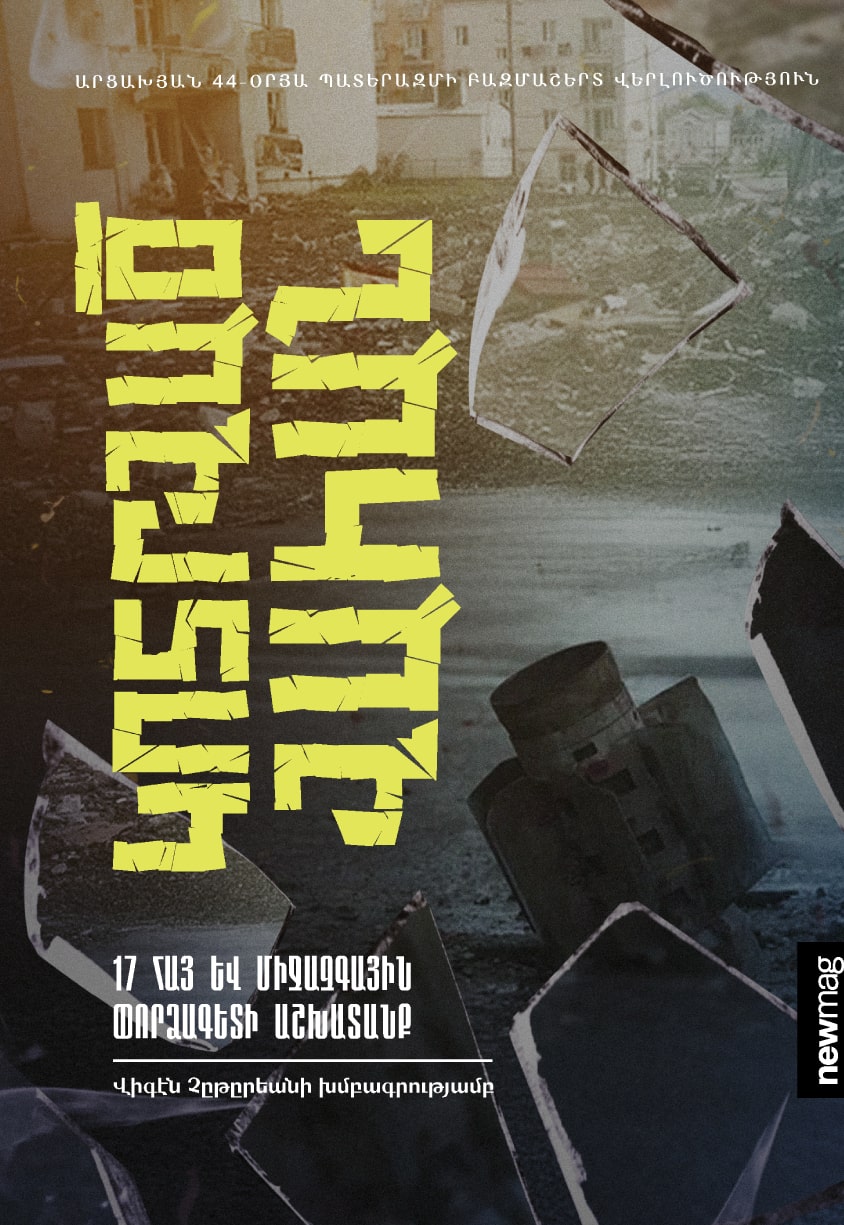
Vicken Cheterian
7800 ֏
Description
This book is a collection of 16 articles on the 2020 Karabakh War, the diplomacy leading up to it, geopolitics, entrenched notions, the arms race and military reforms or lack thereof, and social and domestic political developments in Armenia and Azerbaijan. 17 Armenian and foreign authors examine Armenia’s defeat in the 2020 war, the events and developments that preceded it. The research and publication of this book was funded by the Calouste Gulbenkian Foundation.
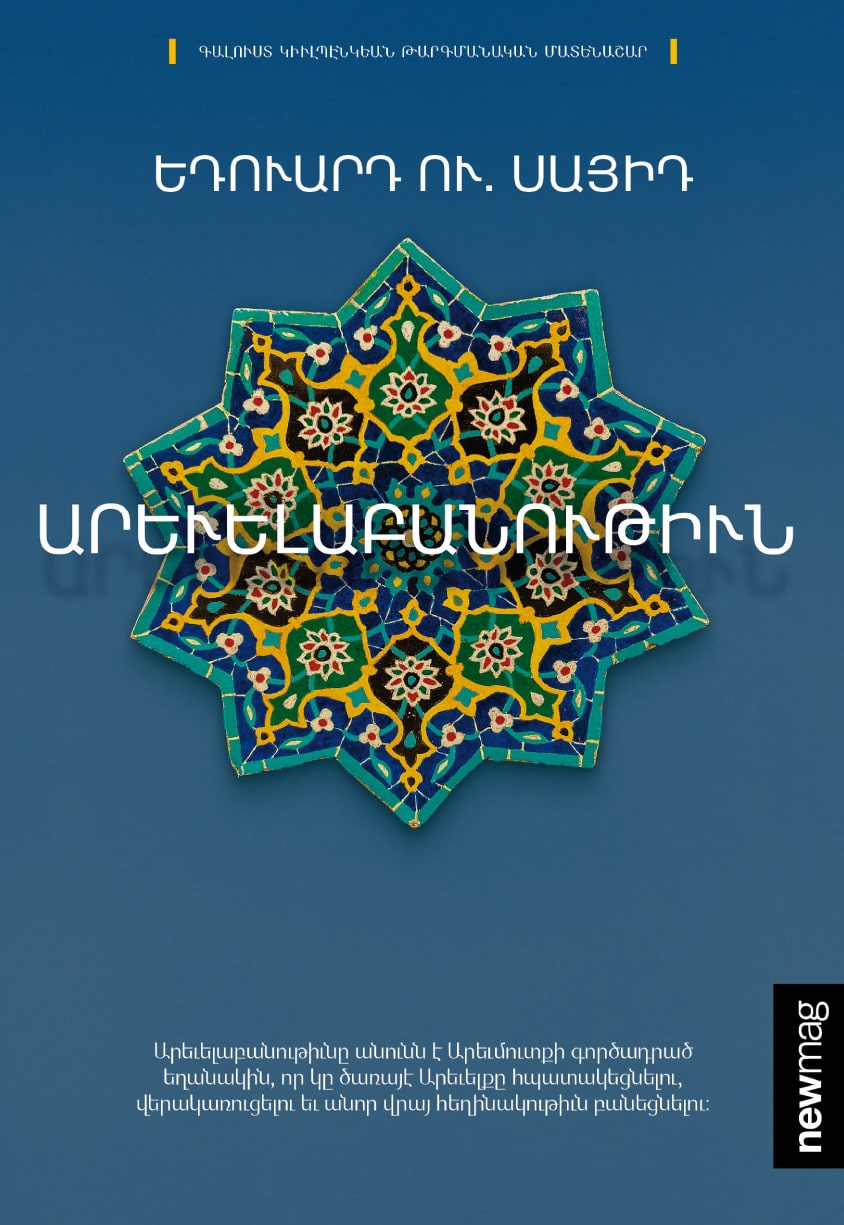
Edward W. Said
8800 ֏
Description
In this extensive, intellectually influential study, Said presents the history of Orientalism. The West, which had long dominated the Near and Middle East, viewed the East from a superior position. The East was called the “Orient” in the West, that is, “Other” in the West. This perspective continues to be entrenched in the West, and, since the West has not allowed the East to present itself, it also inhibits attempts to fully understand the East.
This groundbreaking book, first published in 1978, remains one of the most influential studies in social science, especially in the fields of ethnography and postcolonial studies. Said was critical of the concept of “Orientalism,” which he considered to be a set of false assumptions of the West about the East.
This Throughout the book, Said presents “the Eurocentric prejudice against Arab-Islamic peoples and cultures.” He shows that the false and romantic perception of Asia and the Middle East, rooted in Western culture, served as a justification for the colonial and imperial ambitions of Europe and the United States.
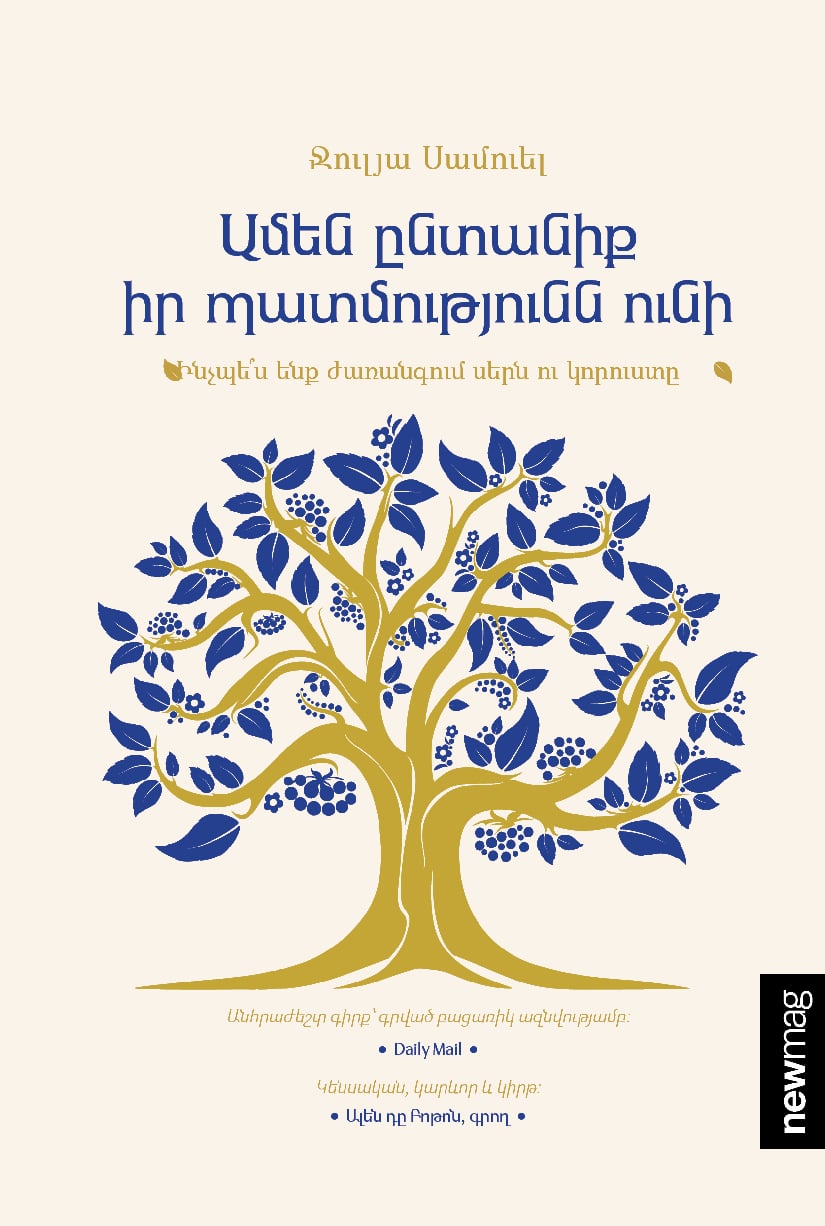
Julia Samuel
6800 ֏
Description
Why do some families thrive in adversity while others fragment? How can families weather difficult transitions together? Why do our families so often exasperate us? And how can even small changes greatly improve our relationships?
In Every Family Has a Story, bestselling psychotherapist Julia Samuel turns from her acclaimed work with individuals to draw on her sessions with a wide variety of families, across multiple generations. Through eight beautifully told and insightful case studies, she analyzes a range of common issues, from loss to leaving home, and from separation to step-relationships, and shows how much is, in fact, inherited—and how much can be healed when it is faced together. Exploring the relationships that both touch us most and hurt us most, including the often under-appreciated impact of grandparents and siblings, and incorporating the latest academic research, she offers wisdom that is applicable to us all. Her twelve touchstones for family well-being—from fighting productively to making time for rituals—provide us with the tools to improve our relationships, and to create the families we wish for. This is a moving and reassuring meditation that, amid trauma and hardship, tells unforgettable stories of forgiveness, hope and love.
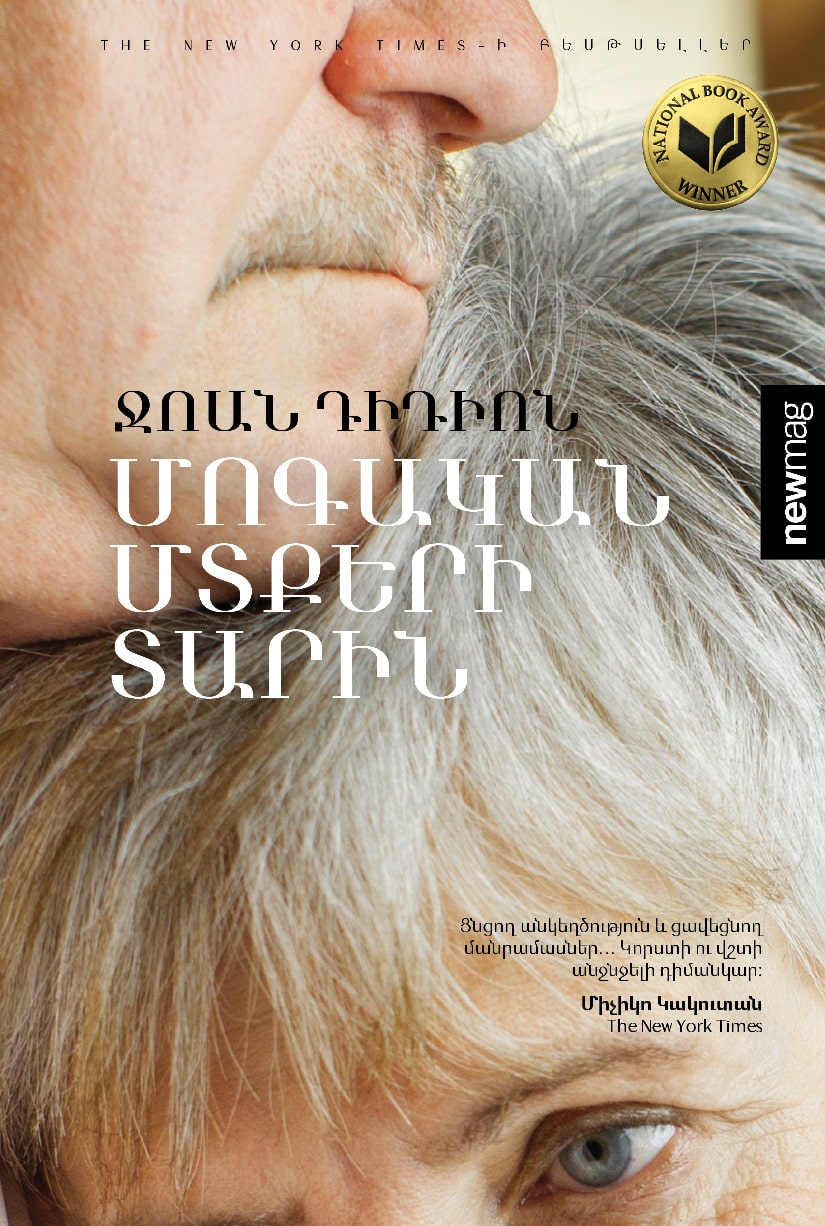
Joan Didion
5800 ֏
Description
In this book, Joan Didion tells the story of the most difficult year of her life. A year when her husband, writer John Gregory Dunne, with whom she had lived for more than 40 years, suddenly passed away. The book is a moving memoir about the author's grief, about overcoming loss, understanding what happened, and about the signs that, if noticed, might have prevented it. The author immerses herself in the disorienting and surrealistic experience of loss, reflecting on the rituals and memories that shape our understanding of life and death. The memoir is not only a story of personal tragedy but also a study of grief, resilience, and the power of the human spirit.
Read also

Winterfest to feature David Georgyan’s sci-fi action novel Impedance (trailer)

At Winterfest 2026, Newmag will present Marianna Hakobyan’s “Don’t Change the Names” (trailer)

Closing and Award Ceremony of the “Sprout in Armenian – 2025” Competition at Newmag Winterfest

“I hope my story will inspire many and help them keep believing and dreaming.” Henrikh Mkhitaryan’s welcoming speech to Armenian fans (video)

